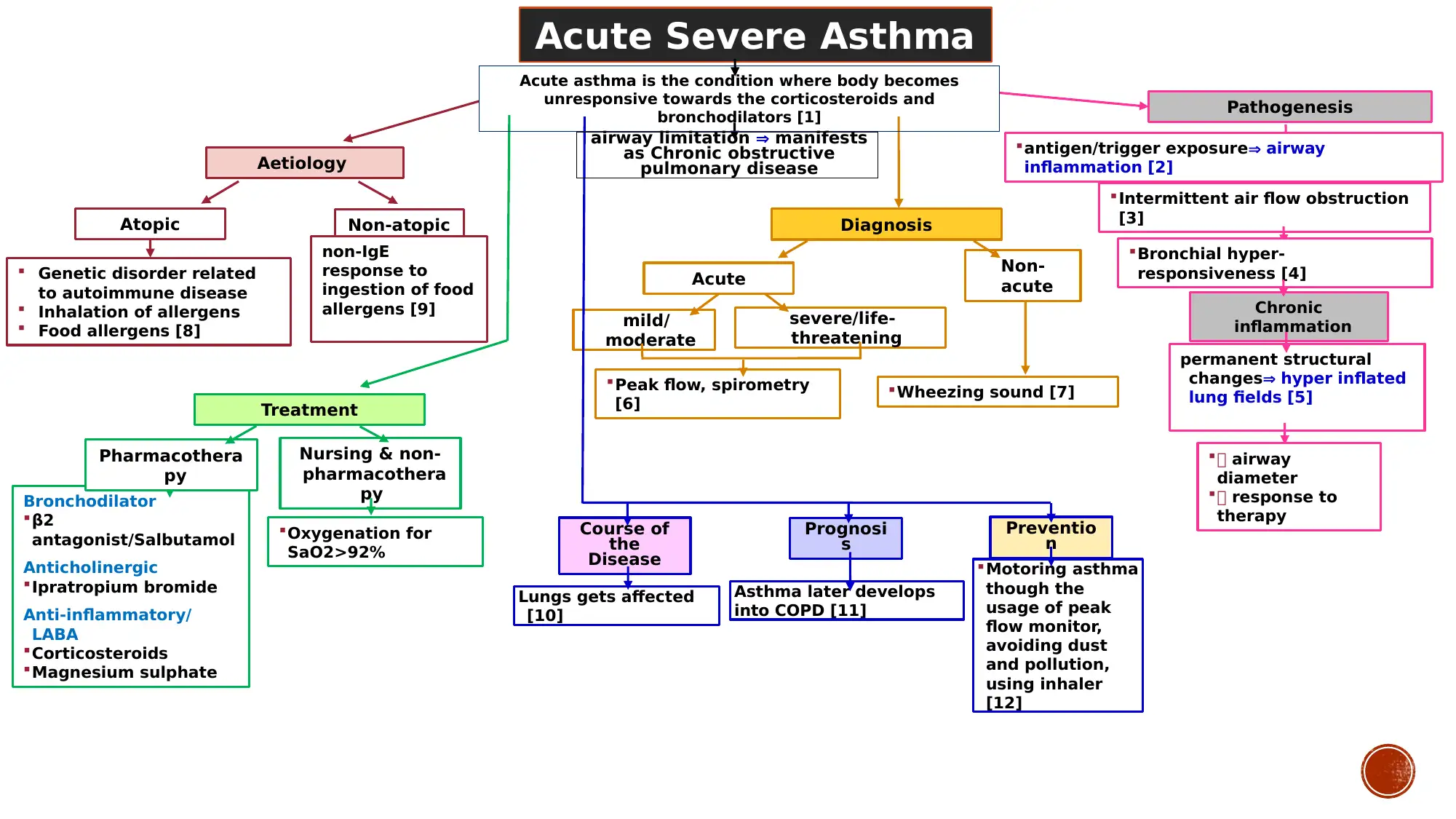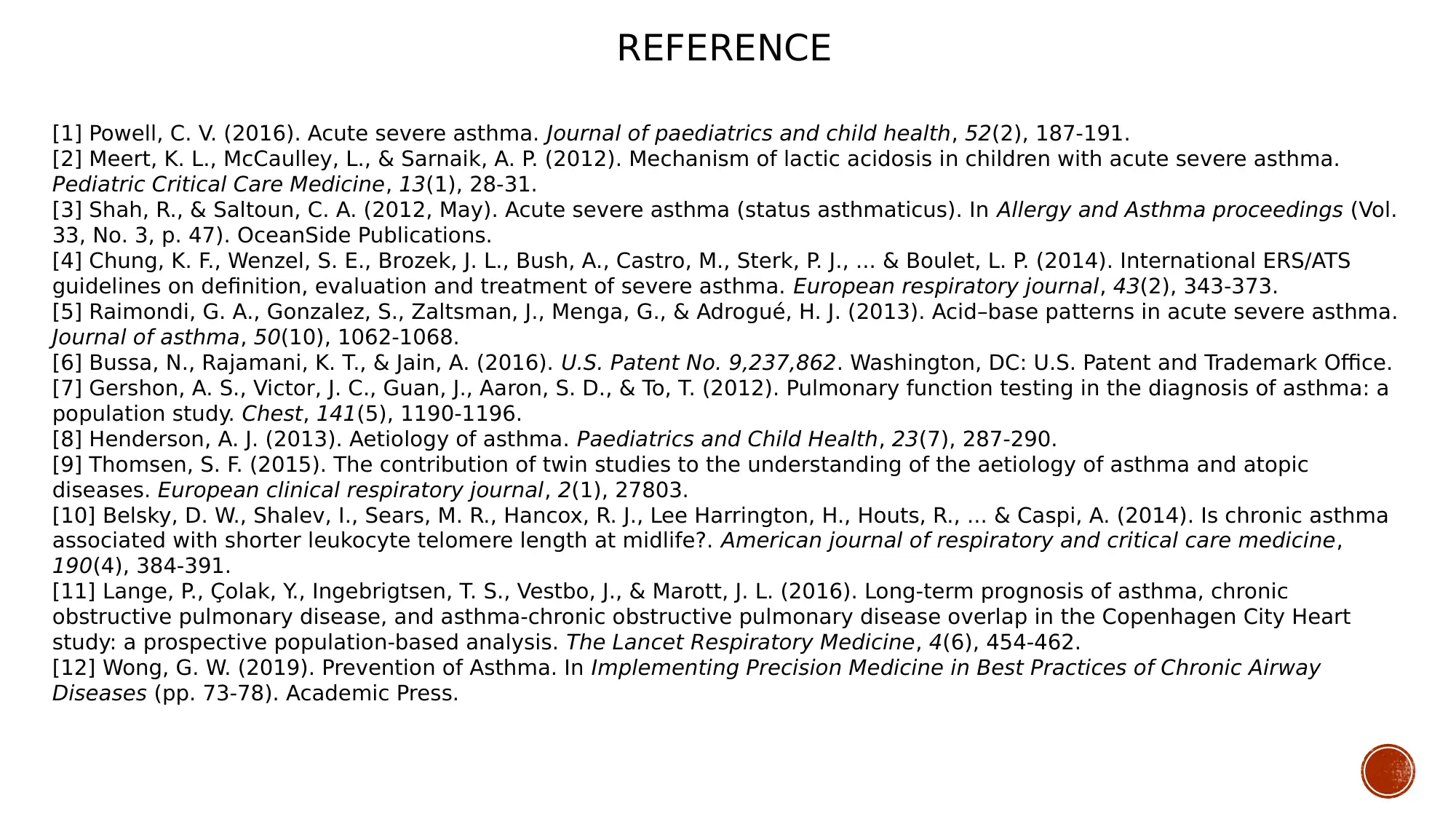Acute Severe Asthma: Aetiology, Pathogenesis, Diagnosis, Treatment, and Prevention
VerifiedAI Summary
Acute severe asthma is a condition where the body becomes unresponsive towards corticosteroids and bronchodilators. It manifests as chronic obstructive pulmonary disease due to airway limitation. The aetiology of acute asthma includes atopic and non-atopic responses to allergens and food allergens. The pathogenesis involves bronchial hyperresponsiveness and chronic inflammation. Diagnosis is done through peak flow and spirometry tests. Treatment options include bronchodilators, anticholinergics, corticosteroids, and magnesium sulphate. Nursing and non-pharmacotherapy options include oxygenation and avoiding triggers. The course of the disease involves permanent structural changes and hyperinflated lung fields. Asthma later develops into COPD. Prevention involves monitoring asthma through peak flow monitors, avoiding dust and pollution, and using inhalers.
![[object Object]](/_next/static/media/star-bottom.7253800d.svg)
![[object Object]](/_next/static/media/star-bottom.7253800d.svg)

